Recombinant Mouse CCN family member 2 (Ccn2), partial
-
货号:CSB-EP006147MO
-
规格:¥1836
-
图片:
-
(Tris-Glycine gel) Discontinuous SDS-PAGE (reduced) with 5% enrichment gel and 15% separation gel.
-
Based on the SEQUEST from database of E.coli host and target protein, the LC-MS/MS Analysis result of CSB-EP006147MO could indicate that this peptide derived from E.coli-expressed Mus musculus (Mouse) Ctgf.
-
Based on the SEQUEST from database of E.coli host and target protein, the LC-MS/MS Analysis result of CSB-EP006147MO could indicate that this peptide derived from E.coli-expressed Mus musculus (Mouse) Ctgf.
-
-
其他:
产品详情
-
纯度:Greater than 90% as determined by SDS-PAGE.
-
基因名:
-
Uniprot No.:
-
别名:Ccn2; betaIG-M2; Ctgf; Fisp-12; Fisp12; Hcs24; CCN family member 2; Cellular communication network factor 2; Connective tissue growth factor; Hypertrophic chondrocyte-specific protein 24; Protein FISP-12
-
种属:Mus musculus (Mouse)
-
蛋白长度:Partial
-
来源:E.coli
-
分子量:53.5kDa
-
表达区域:26-344aa
-
氨基酸序列QDCSAQCQCAAEAAPHCPAGVSLVLDGCGCCRVCAKQLGELCTERDPCDPHKGLFCDFGSPANRKIGVCTAKDGAPCVFGGSVYRSGESFQSSCKYQCTCLDGAVGCVPLCSMDVRLPSPDCPFPRRVKLPGKCCEEWVCDEPKDRTAVGPALAAYRLEDTFGPDPTMMRANCLVQTTEWSACSKTCGMGISTRVTNDNTFCRLEKQSRLCMVRPCEADLEENIKKGKKCIRTPKIAKPVKFELSGCTSVKTYRAKFCGVCTDGRCCTPHRTTTLPVEFKCPDGEIMKKNMMFIKTCACHYNCPGDNDIFESLYYRKMY
Note: The complete sequence including tag sequence, target protein sequence and linker sequence could be provided upon request. -
蛋白标签:N-terminal 10xHis-SUMO-tagged
-
产品提供形式:Liquid or Lyophilized powder
Note: We will preferentially ship the format that we have in stock, however, if you have any special requirement for the format, please remark your requirement when placing the order, we will prepare according to your demand. -
缓冲液:Tris-based buffer,50% glycerol
-
储存条件:Store at -20°C/-80°C upon receipt, aliquoting is necessary for mutiple use. Avoid repeated freeze-thaw cycles.
-
保质期:The shelf life is related to many factors, storage state, buffer ingredients, storage temperature and the stability of the protein itself.
Generally, the shelf life of liquid form is 6 months at -20°C/-80°C. The shelf life of lyophilized form is 12 months at -20°C/-80°C. -
货期:Basically, we can dispatch the products out in 1-3 working days after receiving your orders. Delivery time may differ from different purchasing way or location, please kindly consult your local distributors for specific delivery time.Note: All of our proteins are default shipped with normal blue ice packs, if you request to ship with dry ice, please communicate with us in advance and extra fees will be charged.
-
注意事项:Repeated freezing and thawing is not recommended. Store working aliquots at 4°C for up to one week.
-
Datasheet & COA:Please contact us to get it.
相关产品
靶点详情
-
功能:Major connective tissue mitoattractant secreted by vascular endothelial cells. Promotes proliferation and differentiation of chondrocytes. Mediates heparin- and divalent cation-dependent cell adhesion in many cell types including fibroblasts, myofibroblasts, endothelial and epithelial cells. Enhances fibroblast growth factor-induced DNA synthesis.
-
基因功能参考文献:
- These results reveal a novel mechanism of macrophage migration into glomeruli with nephritis mediated by connective tissue growth factor derived from mesangial cells. PMID: 28191821
- early myocardial CTGF mRNA expression (six hours) after Ang-II exposure is likely dependent on latent TGF-beta activation via the canonical Smad-dependent pathway in resident cardiac cells. PMID: 29575960
- These results indicate that the hepatocytic expression of TGF-beta and CTGF is mediated by Wnt signalling in Schistosoma japonicum infection. PMID: 28331224
- Data (including data from studies using transgenic mice) suggest that Ctgf secreted from vascular endothelium in pancreas plays critical role in up-regulation of insulin secretion in pancreatic beta-cells during pregnancy; here, pregnant mice with global Ctgf haplo-insufficiency (heterozygous for loss-of-function mutation) (a) exhibit impairment in maternal beta-cell proliferation and (b) develop gestational diabetes. PMID: 29111856
- The data demonstrate that MMP13 and CTGF play a crucial role in modulation of fibrogenic mediators while promoting hepatic fibrogenesis. PMID: 28782260
- p-SMAD2/3 and p-ERK1/2 might play a regulatory role in TGF-beta1 induced CTGF exp p-SMAD2/3 and p-ERK1/2 might play a regulatory role in TGF-beta1 induced CTGF expression during tooth development. PMID: 28825193
- Ctgf is the direct target gene of SOX9 in chondrocytes and nucleus pulposus cells. PMID: 27436052
- As shown in mouse model of kidney fibrosis CTGF is significantly involved in fibrosis-associated renal lymphangiogenesis through regulation of, and direct interaction with, VEGF-C. PMID: 28545716
- this study suggested that CTGF antibody protected podocytes against injury in DN mice by reducing beta-catenin overexpression and preventing podocyte EMT, which might provide new insight into the mechanism of CTGF inhibition in the treatment of DN. PMID: 28370212
- LPA-LPA1 signaling initiates profibrotic epithelial cell fibroblast communication mediated by epithelial cell derived connective tissue growth factor. PMID: 27927603
- Down-regulation of CTGF is effective in inhibiting postoperative scarring in vivo. This suggests that RNAi with CTGF siRNA may potentially pave the road for a novel therapeutic strategy to improve glaucoma surgery results. PMID: 26554857
- CTGF role in cardiac fibrosis. Long noncoding RNA H19 mediates CTGF expression. PMID: 28753062
- Notch1 haploinsufficiency decreased the expression of Ctgf in the aorta and in vitro cell culture system. In vitro studies on SMCs using the Notch1 intracellular domain (NICD) plasmid, dominant negative mastermind-like (dnMAML), or specific siRNA suggest that Notch1, not Notch3, directly modulates the expression of CTGF PMID: 28562688
- these findings show that cardiac ERK1/2 activity is modulated in part by TGF-b/Smad signaling, leading to altered activation of CTGF/CCN2 to mediate fibrosis and alter cardiac function. This identifies a novel mechanism in the development of LMNA cardiomyopathy. PMID: 27131347
- the mechanistic target of rapamycin (mTOR) pathway in neurons regulates CTGF production and secretion, revealing a paracrine mechanism by which neuronal signaling regulates oligodendrocyte maturation and myelination in tuberous sclerosis complex (TSC). PMID: 28183733
- CCN2 suppression by miR-199a-5p accounts, in part, for low-level fibrogenic gene expression in quiescent hepatic stellate cells (HSCs) and causes dampened gene expression in activated HSCs after horizontal transfer of miR-199a-5p in exosomes from quiescent HSCs. PMID: 27662798
- Overexpression of CTGF in cardiomyocytes attenuates left ventricular hypertrophy in angiotensin II induced hypertension. PMID: 28287886
- CTGF is overexpressed in gastric cancer and adjacent tissue compared to normal gastric tissue. Gastrin induces expression of CTGF in gastric epithelial cells. PMID: 27179776
- These results indicate that tensile force induces in vivo gene expression associated with vascularization early in tensile-force-induced sutural bone formation. Moreover, the early induction of Vegf gene expression is regulated by CTGF and ROCK2. PMID: 26825658
- these results suggested that loss of miR-30c may contribute to the pathogenesis of diabetic nephropathy (DN) by inhibiting target CTGF expression; replenishing miR-30c may ameliorate renal structure and function by reducing renal fibrosis in DN. PMID: 26775556
- Data suggest that PTEN phosphatase (PTEN) regulates renal extracellular matrix production via activated protein kinase B (Akt) and increased connective tissue growth factor (CTGF) in diabetes mellitus. PMID: 26447680
- Under physiological conditions, CCN2 may be regulating the levels of free amino acids in the extracellular matrix of cartilage. PMID: 26364758
- These data indicate that LPA increases CCN2 expression through the activation of PKC and PKA. Thus, the regulatory functions of the PKC and PKA pathways are implicated in the LPA-induced increase in CCN2 expression PMID: 26743816
- CTGF inhibition may benefit patients with dilated cardiomyopathy. PMID: 26549358
- These results suggest that TGF-beta1 and CTGF may be involved in the process of denervated skeletal muscle fibrosis. PMID: 26686381
- CCN genes are activated in heart failure. PMID: 25712640
- CTGF knockout does not affect cardiac hypertrophy and fibrosis formation upon chronic pressure overload. PMID: 26410398
- these findings reveal a key role of the SRF/CTGF/miR-133a axis in the regulation of cardiac fibrosis PMID: 26440278
- Descriptive Statement Elimination of TGF-betaIIR is not sufficient to completely prevent liver fibrosis. TGF-beta-independent mechanism of type I collagen production and suggest connective tissue growth factor as its potent mediator. PMID: 25108224
- CCN2 up regulation by tumor stromal cells is responsible for the melanoma metastasis. PMID: 26168233
- CTGF siRNA ameliorates tubular cell apoptosis and tubulointerstitial fibrosis in obstructed mouse kidneys in a Sirt1-independent manner. PMID: 26257513
- CTGF overexpression induces epithelial to mesenchymal transition in mouse primary AT II cells, which is mediated by ILK PMID: 25580742
- Data suggest that, in mice with type 1 diabetes mellitus and diabetic nephropathy, up-regulation of urinary CTGF level is independently associated with biomarkers of proximal and distal tubular dysfunction and pathology. PMID: 26171399
- Report showed that loss of PTEN expression resulted in collagen deposition in the lung in a CCN2-dependent manner supporting the notion that alterations in PTEN expression contribute to fibrogenesis and that CCN2 mediates collagen production in fibrosis. PMID: 25644104
- knockdown of MRTF-A synthesis abolishes the systemic sclerosis myofibroblast enhanced basal contractility and synthesis of type I collagen and inhibits the matricellular profibrotic protein, connective tissue growth factor CCN2/CTGF PMID: 25955164
- findings suggest CCN2 as a candidate of the fourth factor in the RANK/RANKL/OPG system for osteoclastogenesis, which regulates OPG and RANK via direct interaction PMID: 25554597
- MRTF-A promotes microvessel growth (via CCN1) and maturation (via CCN2), thereby enabling functional improvement of ischaemic muscle tissue PMID: 24910328
- CTGF reporter mice selectively identify a subpopulation of bone marrow mesenchymal progenitor cells that reside in the trabecular bone region. PMID: 25464947
- Neither heart-specific Ctgf deletion nor CTGF overexpression altered cardiac remodeling and function with aging or after multiple acute stress stimuli. PMID: 25870108
- This study provides a better understanding of the functions of connective tissue growth factor within the bone marrow, showing the dual regulatory role of the growth factor in skeletogenesis and in stage-specific B lymphopoiesis. PMID: 24727816
- functional connection between CTGF and integrin alphavbeta6 during hepatic progenitor/oval cell activation and associated fibrosis PMID: 25203810
- Ctgf is a target of Notch canonical signaling in osteoblasts, and may act in concert with Notch to regulate skeletal homeostasis PMID: 24792956
- application of exogenous CCN2 protein caused ERK1/2 activation, and the neutralizing CCN2 antibody inhibited loading-induced ERK1/2 activation. PMID: 24155087
- ET1 contributes to AF-dependent atrial fibrosis by synergistic activity with AngII to stimulate SGK1 expression and enhance phosphorylation of the SGK1 protein which, in turn, induces CTGF. PMID: 23414741
- CTGF attenuates cardiac hypertrophy upon chronic pressure-overload due to inhibition of signaling mechanisms that promote pathologic myocardial hypertrophy. PMID: 23452880
- CCN2 is packaged into secreted, nano-sized exosomes that mediate its intercellular transfer between hepatic stellate cells. PMID: 24882759
- Transverse aortic constriction induced the cardiac expression of profibrotic connective tissue growth factor and attenuated the expression of SERCA2a (sarcoplasmic reticulum Ca2+-ATPase) in knockout mice PMID: 25027872
- These findings uncover a novel functional role of CCN2 as a metabolic supporter in the growth-plate chondrocytes, which is required for skeletogenesis in mammals. PMID: 24288211
- In a cardiomyocyte cell line, CTGF was secreted in response to cell stretching on a flexible membrane base (a cellular phenotype of cardiac diastolic dysfunction). PMID: 24464932
- CCN2 expression by dermal papillae cells is a physiologically relevant suppressor of hair follicle formation by destabilization of beta-catenin and CCN2 normally acts to maintain stem cell quiescence. PMID: 24152728
显示更多
收起更多
-
亚细胞定位:Secreted, extracellular space, extracellular matrix. Secreted.
-
蛋白家族:CCN family
-
组织特异性:Testis, spleen, kidney, lung, heart, and brain (lowest level in testis and highest in lung).
-
数据库链接:
KEGG: mmu:14219
STRING: 10090.ENSMUSP00000020171
UniGene: Mm.390287
Most popular with customers
-
Recombinant Human T-cell immunoreceptor with Ig and ITIM domains (TIGIT), partial (Active)
Express system: Mammalian cell
Species: Homo sapiens (Human)
-
Express system: Mammalian cell
Species: Homo sapiens (Human)
-
Recombinant Human IGF-like family receptor 1 (IGFLR1), partial (Active)
Express system: Mammalian cell
Species: Homo sapiens (Human)
-
Recombinant Human Prolactin receptor (PRLR), partial (Active)
Express system: Mammalian cell
Species: Homo sapiens (Human)
-
Recombinant Human C-X-C chemokine receptor type 4 (CXCR4)-VLPs (Active)
Express system: Mammalian cell
Species: Homo sapiens (Human)
-
Recombinant Mouse Retinol-binding protein 4 (Rbp4) (Active)
Express system: Mammalian cell
Species: Mus musculus (Mouse)
-
Recombinant Macaca fascicularis Claudin (CLDN18)-VLPs (Active)
Express system: Mammalian cell
Species: Macaca fascicularis (Crab-eating macaque) (Cynomolgus monkey)
-
Recombinant Mouse Claudin-18 (Cldn18)-VLPs (Active)
Express system: Mammalian cell
Species: Mus musculus (Mouse)

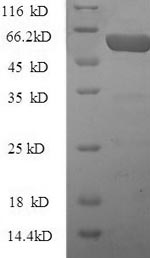
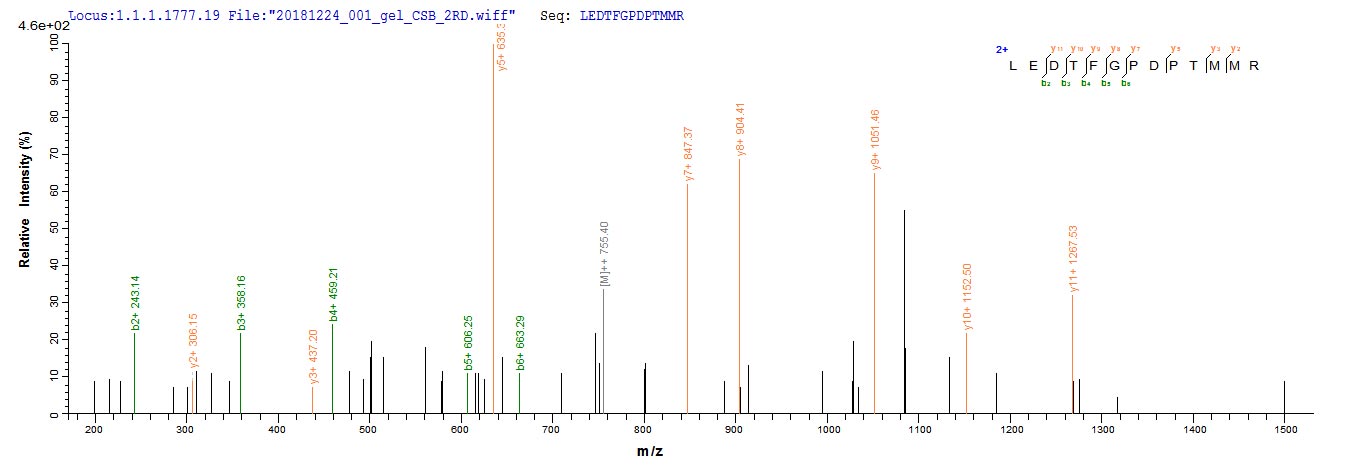
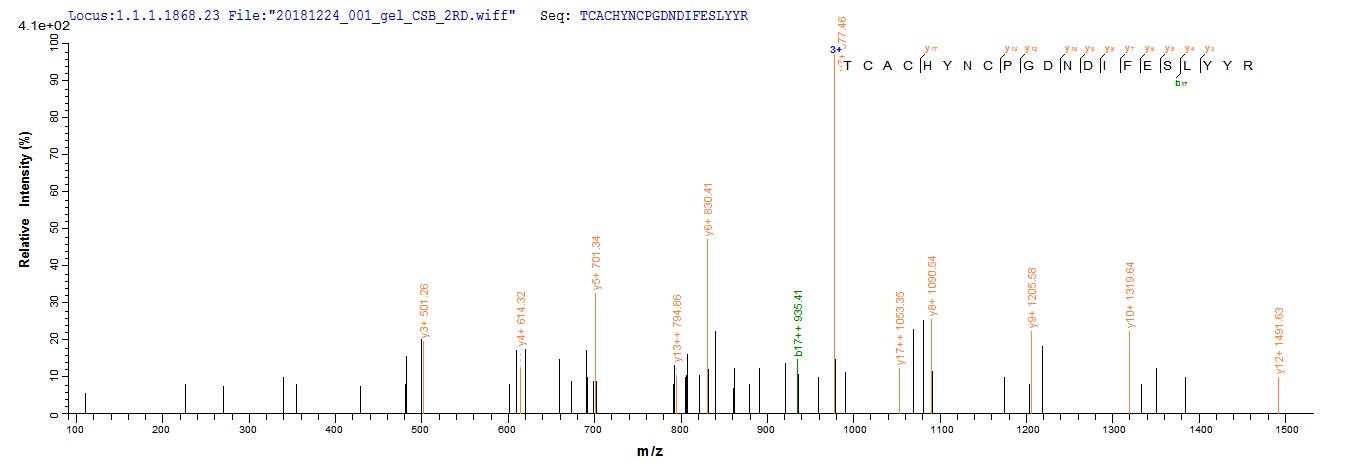

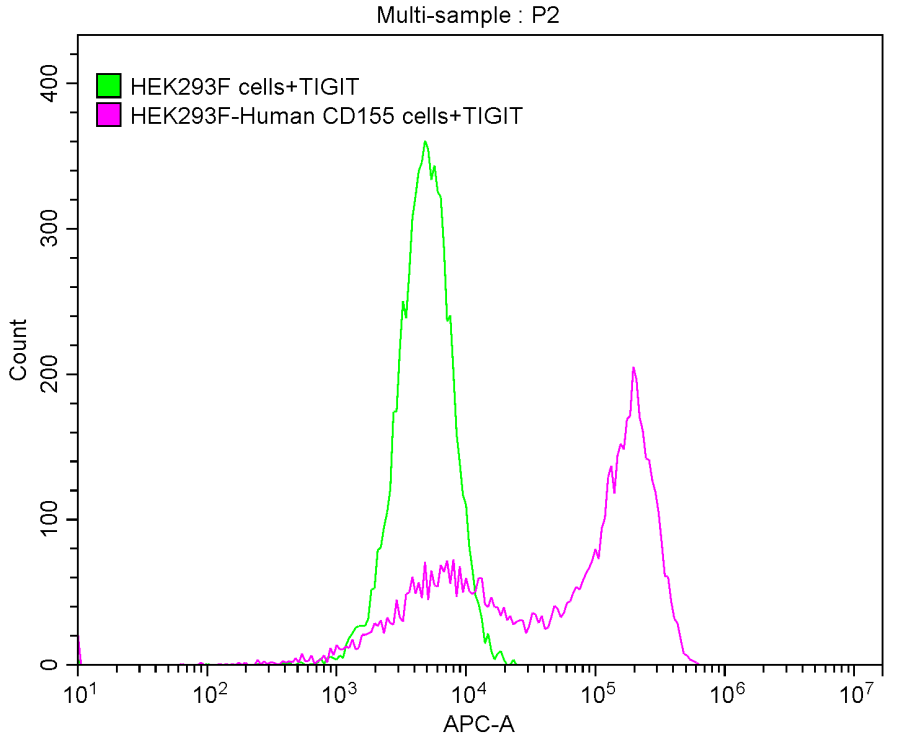
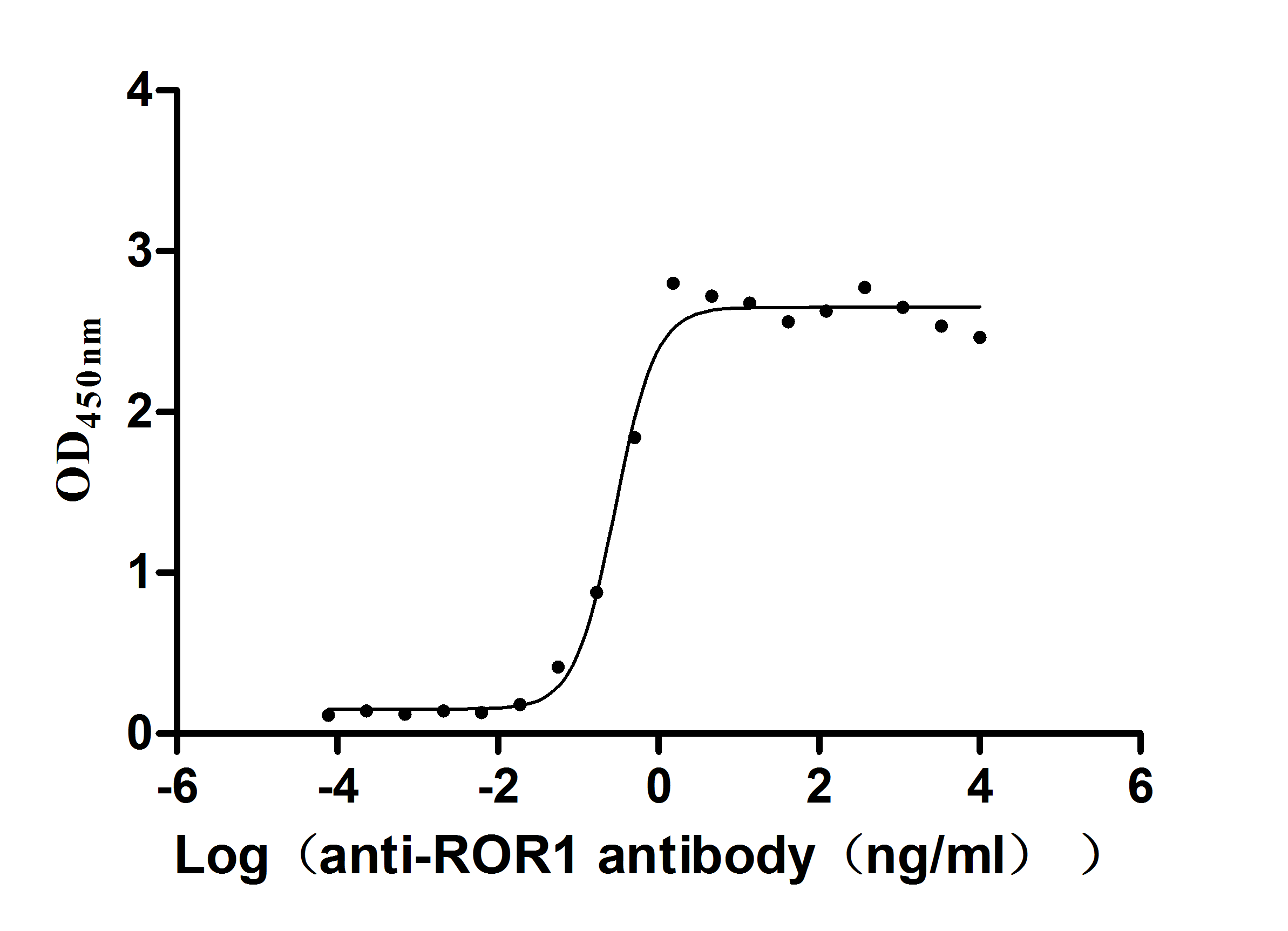
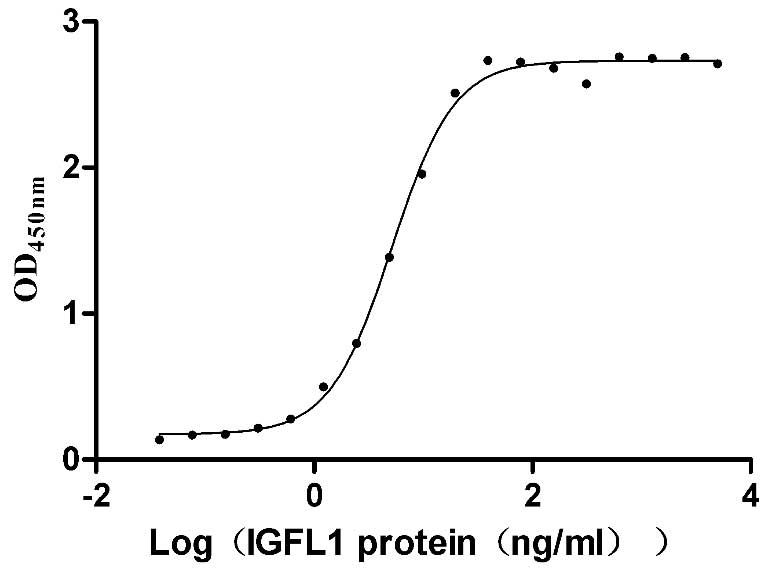
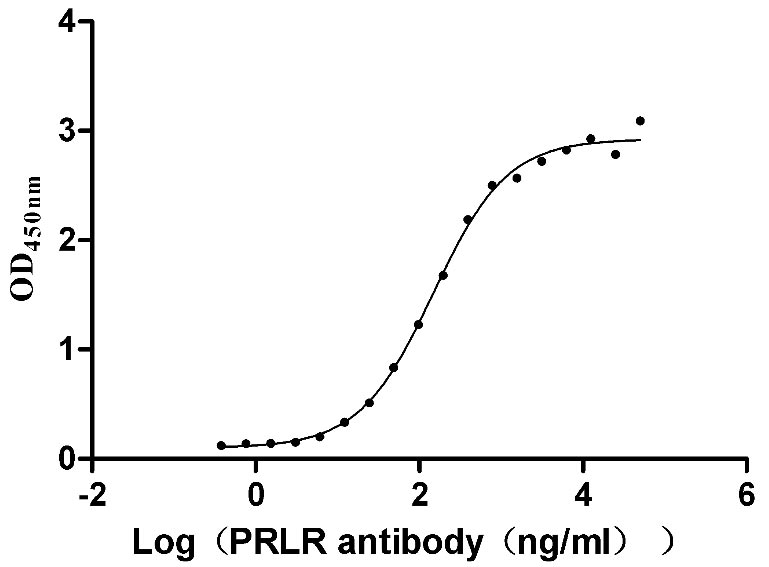
-AC1.jpg)
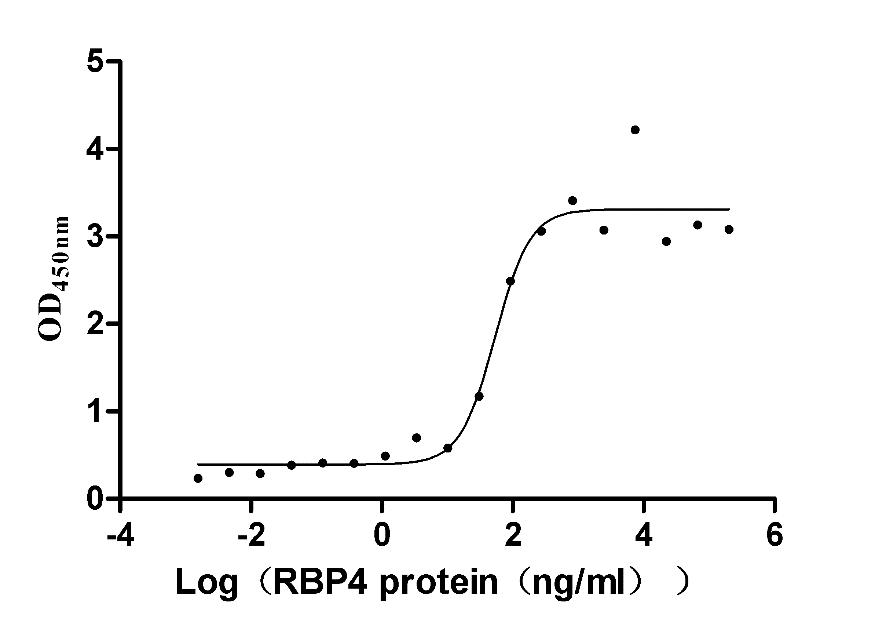
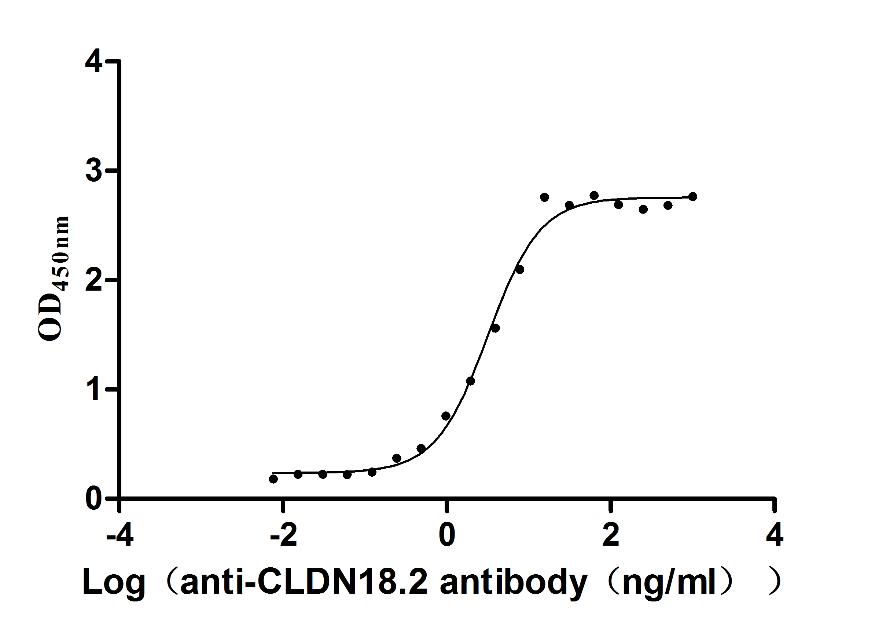
-AC1.jpg)










